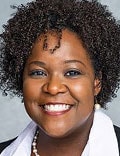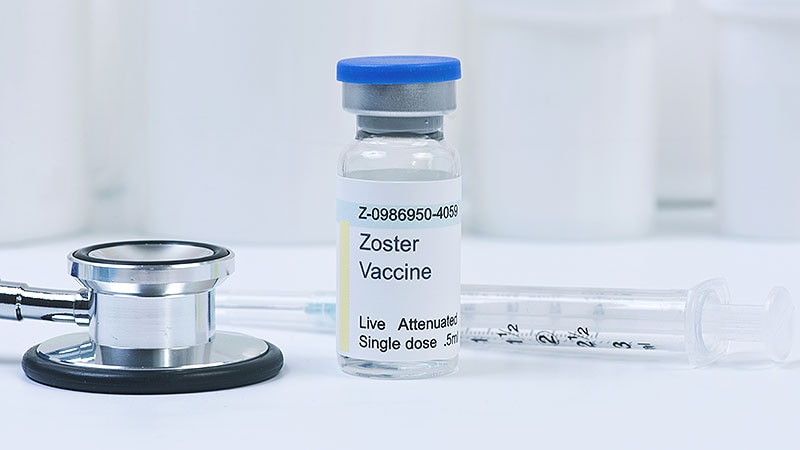It’s a rite of passage — or probably should be — for adults upon reaching 50 years of age: Getting vaccinated for shingles.
Currently, the two-dose Shingrix vaccine, which is the only shingles vaccine available in the US, is recommended for adults aged 50 years or older, as well as adults aged 19 years or older who are immunocompromised.
The vaccine shouldn’t be a hard sell, given the available information about its effectiveness and the risks for shingles, John Pauk, MD, MPH, medical director of Infectious Diseases, Infection Prevention, and Antimicrobial Stewardship for Swedish Health Services and Caregiver Health for Providence Swedish in Seattle, said. “The most important step is remembering to make the time during medical visits to have the conversations as part of preventative care,” he said.
The two-dose vaccine could also be more important for patients at risk for cardiovascular problems. Research released last month shows patients who get the vaccine have a 23% lower risk for all cardiovascular disease events, including stroke, heart failure, and coronary heart disease.
Those benefits last for up to 8 years, researchers found, and the protective effect was particularly pronounced for men, people younger than 60 years, and those with unhealthy lifestyles, such as smoking, drinking alcohol, and being inactive.
However, in a time of growing vaccine hesitancy, clinicians may worry they’ll begin encountering some reluctance among their patients to get the shingles vaccine.
“It’s harder nowadays because there’s so much misinformation about vaccines,” Elizabeth Mock, MD, MPH, a member of the board of directors for the American Academy of Family Physicians, said. “People are more likely to get their medical information from TikTok than they are from their family physician. That’s a difficult thing to overcome.”
Here’s what physicians and other providers may want to consider when speaking to their patients about the importance of the shingles vaccine.
Why the Shingles Vaccine Matters
Ask any clinician who’s cared for a patient with shingles if they’d get vaccinated for shingles themselves, and you’re likely to get a hearty “yes.”
Ryan C. Maves, MD, professor of infectious disease and internal medicine at Wake Forest University School of Medicine, Winston-Salem, North Carolina, celebrated his own 50th birthday by calling to schedule his first dose of the shingles vaccine. “I’ve taken care of a lot of shingles over the years,” he said. “I don’t want shingles.”

“It’s just miserable,” agreed Salisia Valentine, DNP, FNP-C, MSN, RN, vice president of Provider Services at American Family Care. “The ones who’ve had it are the ones saying, ‘Give me the vaccine. This is awful.’”
A few points to discuss with patients about the vaccine:
It Prevents Nerve Pain
As a neurotropic virus, the varicella zoster virus (VZV) is infamous for causing postherpetic neuralgia (PHN). After the painful, itchy rash clears up, pain can linger in the same affected areas for months or, in some cases, years. Between 10% and 20% of patients with zoster develop PHN, and it can have a very serious impact on their lives, Pauk said.
However, vaccination is considered more than 90% effective in preventing shingles and PHN in adults older than 50 years with healthy immune systems, according to the CDC.
Treatments Are Only ‘Variably Effective’
While many treatments can be used to manage PHN, there’s no standard treatment. Nonsteroidal anti-inflammatory drugs may help people with milder pain, and an antiseizure drug, such as gabapentin or pregabalin, may be more appropriate for managing more severe nerve pain. Even then, treatments are only “variably effective,” according to Judith O’Donnell, MD, chief of Infectious Diseases at Penn Presbyterian Medical Center and professor of infectious diseases at the Perelman School of Medicine at the University of Pennsylvania, Philadelphia.

“Some people do get reasonable pain control with them, but others do not, and you don’t know who those are going to be,” she said.
Maximo Brito, MD, MPH, professor of medicine at the University of Illinois College of Medicine, Chicago, added, “There are treatments that are available, but I think prevention is much better than treatment.”
It Can Reduce the Possibility of Herpes Zoster Ophthalmicus
If the prospect of nerve pain isn’t enough to convince some patients of the benefits of getting vaccinated for shingles, the possibility of vision loss might be.
The VZV can reactivate in the ophthalmic branch of the fifth cranial nerve, causing herpes zoster ophthalmicus, which may occur in as many as 10%-20% of herpes zoster cases. According to research, conjunctivitis seems to be the most common involvement, followed by keratitis and uveitis, but a small percentage of people may experience moderate or even severe vision loss, usually caused by corneal scarring.
How to Bring Up the Issue
O’Donnell suggests clinicians start talking to their patients at well visits before they reach their 50th birthday, when most people become eligible for the two-dose Shingrix vaccine. Then they can give reminders.
It may also help to explain that almost everyone born before about 1980 is at risk for shingles because chickenpox was in such wide circulation during their childhood. That means the VZV is dormant in their bodies, waiting to be reactivated.
“Even if we don’t know it, we were likely exposed to the chickenpox virus,” Mock said. “Some people might have been exposed to it and gotten the virus and never gotten sick from it.”
Clinicians must be prepared to respond to patients concerns and talk to them about the risk-benefit ratio of the shingles vaccine.
“Take your time, show sympathy, listen, answer questions, and (don’t) get defensive,” Brito said.
“If patients decline, keep the lines of communication open around vaccines, and continue to revisit their vaccination status,” O’Donnell said. “Be willing to talk through it and offer them vaccines even if they say no the first time.”

Neha Vyas, MD, a family medicine physician with Cleveland Clinic, Mayfield Heights, Ohio, said she would encourage other clinicians not to give up on patients who might decline the chance to get vaccinated. “If you keep talking, the next time they may agree,” Vyas said.
Plus, “this is not something that you have to get yearly,” she added.
Maves emphasized the importance of candor when discussing the shingles vaccine with patients, which includes being upfront about the possible side effects. The most common side effects tend to be injection site swelling and soreness, muscle pain, fatigue, and possibly headache, fever, and shivering.
He often recommends that patients schedule their vaccines on a Friday or another day before an off day, just in case they do experience some fatigue and muscle pain. “Just be braced for it. Just be ready for it,” he tells them.
Benefits Beyond Shingles Prevention?
Eventually, clinicians may also be able to offer additional benefits of vaccination to their patients.
Several recent studies have suggested that people may receive other benefits from getting vaccinated for shingles.
For example, a recent study published in the European Heart Journal found an association between lower risks of overall cardiovascular events and live zoster vaccination. Meanwhile, the results of a recent study in JAMA that reviewed electronic health records in Australia suggested that herpes zoster vaccination may prevent or delay the onset of dementia. Another study, which was published in Nature, analyzed electronic health record data, this time in England and Wales, and also found that live-attenuated herpes zoster vaccination seemed to have a preventive effect for dementia.
However, the live zoster vaccine is not available in the US, with Zostavax having been removed from the market in 2020.
That doesn’t mean that people couldn’t potentially receive similar benefits from the recombinant vaccine that is available here. According to a retrospective cohort study published earlier in 2025 in Vaccine, the rate of dementia was significantly lower in individuals who had received two doses of the recombinant zoster vaccine.
More research could be helpful to determine if patients who receive the two-dose Shingrix vaccine could receive other benefits. However, the primary reason to get the two doses of Shingrix, which is shingles prevention, is a worthwhile cause all by itself, Maves said.
